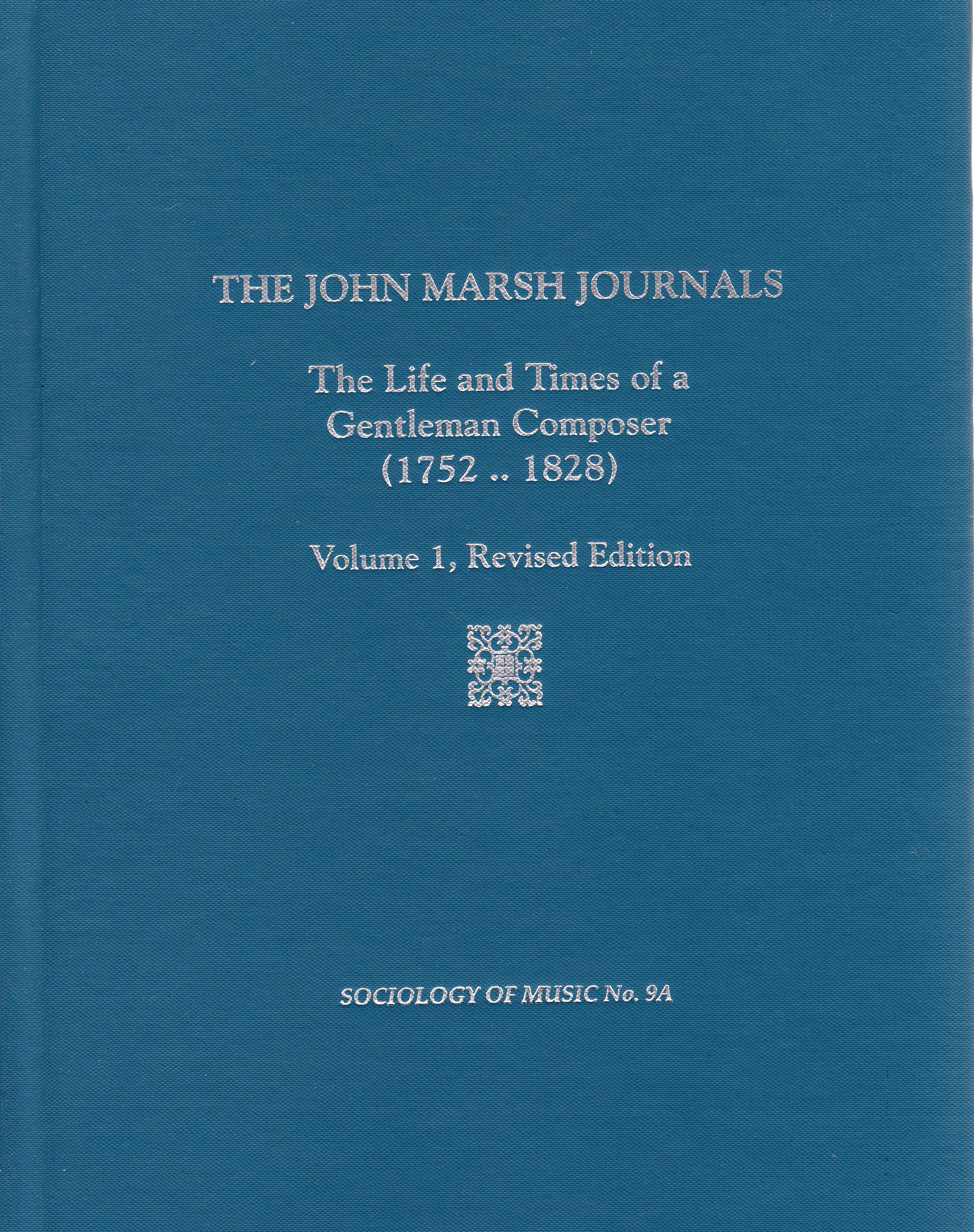Brian Robins’ volume dealing with the years 1752-1801 is a superb production.
He has been working on the Marsh Journals for at least two decades, and the result is a formidable piece of work. The book
is beautifully produced, and is furnished with 21 plates. … It is a splendid piece of scholarship, as well as a thoroughly
entertaining and, at times, very amusing read. I have to say I could hardly put it down. – Nicholas Plumley, Organists’
Review.
Marsh’s
journals run to over 6000 pages in 37 volumes… Brian Robins has laboured as a musical Hercules in reducing this material
to a (barely) manageable monograph. … I would urge every library that can afford it to purchase this volume. Brian
Robins has emulated all the best qualities of his subject in editing these journals for publication. In so doing he has rescued
a worthy musician from obscurity and given us a most edifying, entertaining and enjoyable book. – Richard Turbet,
Brio.
From
time to time a major new source comes to light with the potential to transform radically our understanding of the life and
times of the author. … It is no exaggeration to claim such significance for the journals of John Marsh… Robins’s
editorial hand is commendably light, furnishing the text with useful and informative footnotes where necessary, and allowing
Marsh to speak for himself without too much editorial interference. … the musical community have a great deal to thank
Brian Robins for in preparing this edition. – Rachel Cowgill, Early Music..
… the Marsh journals are collectively
one of the most important sources of information we have about English musical life, to be ranked with Samuel Pepy’s
diary, Charles Burney’s History of Music or Bernard Shaw’s music criticism. … I am glad to report that
Brian Robins has performed his editorial task well. There is a clear statement of editorial method and generally extremely
helpful editorial notes. … no one interested in 18th-century music can afford to be without it. – Peter Holman,
Goldberg Early Music Magazine.
This volume
is, in every sense of the word, a monumental achievement for which anyone interested in English social life and/or music during
the second half of the eighteenth century must be profoundly grateful. We are very glad to have it, occasional warts and all.
– H. Diack Johnstone, Journal of the Royal Musical Association.
This meticulously scholarly volume
(the footnotes alone comprise a small musical encyclopaedia) … must be one of the fullest records in print of daily
life in late 18th-century England.
– Nicholas Spice, The London Review of Books.
… the text is fully annotated
with copious footnotes: the research that has obviously gone into these is phenomenal. - Ian Graham-Jones,
Early Music Review.
